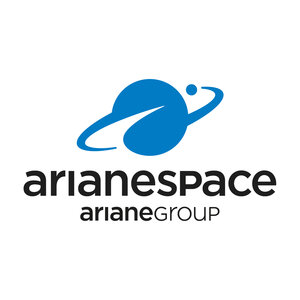Ariane 5 – fourth launch this year
On the evening of 5 October, an Ariane 5 GS launcher lifted off from Europe’s Spaceport in French Guiana on its mission to place two telecommunications satellites into geostationary transfer orbits.
Lift-off of flight V178 took place at 22:02 UTC (19:02 local time, 00:02 CEST). The satellites were accurately injected into the correct transfer orbits about 30 minutes later.
The payload comprised Intelsat 11, which will provide direct-to-home broadcasting and data networking services for Latin America, and Optus D2, which is a broadcasting and data communications satellite that will serve Australia and New Zealand The payload mass was 5857 kg; the satellite masses totalled 4832 kg, with payload adapters and dispensers making up the additional 1025 kg.
This fourth launch of the year keeps Arianespace and Europe’s Spaceport on target to perform six Ariane-5 launches in 2007 as they head towards their target of seven to eight missions per year from 2009.
Flight timeline
The Ariane 5’s cryogenic, liquid-fuelled, main engine was ignited first. Seven seconds later, the solid fuel rocket boosters were also fired, and a fraction of a second after that, the launch vehicle lifted off.
The solid boosters were jettisoned 2 min: 20 sec after main engine ignition, and the fairing protecting the payload during the climb through the Earth’s atmosphere was discarded at 3 min: 15 sec. The launcher’s main engine was shut down at 9 min: 37 sec; six seconds later the main cryogenic stage separated from the upper stage and its payload.
Seven seconds after main stage separation, the engine of the launcher’s storable propellant upper stage was ignited to continue the journey. The upper stage engine was shut down at 26min:33sec into the flight, at which point the launch vehicle was travelling at 8614 metres per second (just over 31 000 km/h) at an altitude of 1582.5 kilometres and the conditions for geostationary transfer orbit injection had been achieved.
At 27 min: 48 sec after main engine ignition, Intelsat 11 separated from the launcher, followed by Optus D2 at 32 min: 01 sec.















 Germany
Germany
 Austria
Austria
 Belgium
Belgium
 Denmark
Denmark
 Spain
Spain
 Estonia
Estonia
 Finland
Finland
 France
France
 Greece
Greece
 Hungary
Hungary
 Ireland
Ireland
 Italy
Italy
 Luxembourg
Luxembourg
 Norway
Norway
 The Netherlands
The Netherlands
 Poland
Poland
 Portugal
Portugal
 Czechia
Czechia
 Romania
Romania
 United Kingdom
United Kingdom
 Slovenia
Slovenia
 Sweden
Sweden
 Switzerland
Switzerland



































